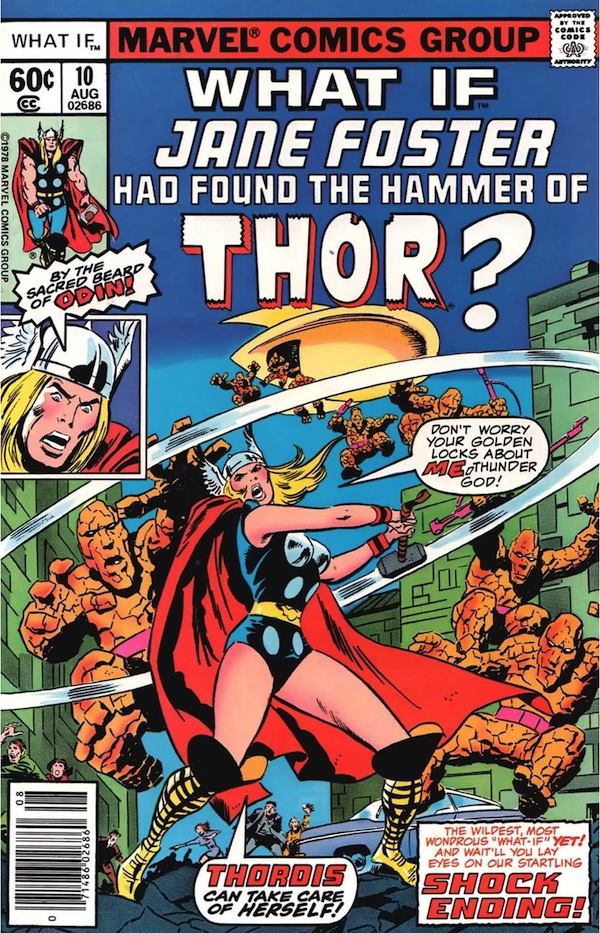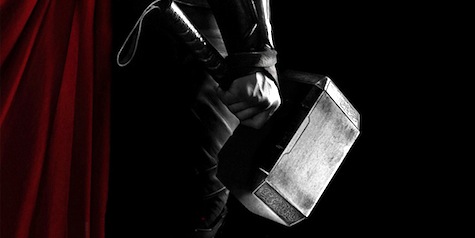Oh, the fury. The rage of fans who rally against change, across the board. There are so many reasons for the anger, too. There’s the academic “I don’t like where my media is going, so this specific move is a harbinger of everything that’s wrong!” There’s the over-concerned “I just think they should be more creative when trying to open up properties to groups that have classically been overlooked.” There’s the brazen “Diversity is just pandering, and if that’s what my favorites stories have become, I’m out of here.”
When this rage is directed toward comics, it’s even more amusing because comics as a medium are in a constant state of flux. Comics change so often and so completely that they are labeled by ages. Any alteration can be dropped, any storyline glossed over, rebooted, or decanonized with zero notice. It is part of being a comics reader—not every run will, or can, appeal to every fan.
Marvel recast Thor as a woman a couple weeks back, and Sam Wilson will be Captain America starting this fall. Thor was once a frog in the comics and Captain America has been several other (white) men before Wilson. If you look at the new Avengers lineup, men still outnumber women, and white people still outnumber people of color. And yet the anger is still there. It’s not surprising. It happens all the time. So why is this really a problem?
Short answer: it’s not.

If current story lines in the Marvel universe are getting a reader down, that’s fine. It’s down to taste, and taste is subjective. Sometimes stories are told poorly, but overall, whether or not you like something is a matter of your experience; stories you’ve heard too many times, stories you have a soft spot for, characters that you’re protective of, ideas that influenced you. It could be down to a dislike of allegory, or an annoyance with riffs on popular mythology. Add art into the mix and it gets more complicated; is the art dynamic enough for the tale’s purpose? Do people seem to be adopting poses that are anatomically impossible for the human body? Do you enjoy the way the characters are portrayed this time around? (I have this problem with Warren Ellis’ Extremis; love the story, love Adi Granov’s art—but he draws Tony Stark to look so much like Tom Cruise, and it skeeves me out every time.)
These are all valid reasons to take issue with the media you imbibe. But a claim that Thor’s current recast or Wilson’s donning of the shield is an indication of poor storytelling? It’s just plain wrong. That is not an indication of quality. That is an indication of long-running comics being comics and doing what comics do. If you’re not into the story right now, that’s cool. You can spend your dollars on things that you like better. You can talk about other (more astute) reasons why you’re not happy with the current run.
If one of your complaints is that comics should spend more time creating new and interesting characters for women and people of color (and other often-ignored groups) to enjoy and relate to, then awesome! That is true, and still needs addressing. But to then suggest that altering well-known quantities to portray a beloved character in a different skin is a waste of time? To slam the decision on account of the fact that “Thor is man” and “Captain America is a white guy,” and there is no good reason to change this?
Well, I have someone I would like to introduce you to: Princess Thor.
See, because this is where I start to get punchy. There’s an insistence in parts of fandom that these changes are not legitimate because they are designed to appeal to mythical creatures: those same female and POC comics readers. No matter how other parts of fandom would try to disprove it, there is still a vocal contingent of people who are keen on informing the world (or at least the internet) that these fans don’t deserve recognition and representation because they basically don’t exist. Pandering to fans you don’t have, or trying to woo fans you don’t have into becoming fans that you do have—that’s annoying. And it’s bad business. And a million other bad things.
The other underlying current to the argument is: anyone who enjoys these changes—what’s wrong with you? Why wouldn’t you rather have characters who were created specifically for you? Lady Sif exists, so does Valkyrie. So does Luke Cage and Deathlok. There will be new characters in the future, as Kamala Khan has proved. There is no reason to take the better-known characters and titles and turn them into people they’re not. You’ll get your fill from other places.

Yet here is Princess Thor. She exists. And there are so many more of her out there. She is reflected in every woman who cosplays as a male character at a convention. To every POC cosplayer who is fighting against the “alternate” label. No, I’m not “black” Batman. No, I’m not Lady Doctor Strange.
I am Batman. I am Doctor Strange.
These fans are here. They have been here all along, and finally showing them that their desire to inhabit these figures is not so remote is an excellent decision. It doesn’t guarantee that these new story lines will pan out well, or that they will be handled with care. But making the choice alone counts for something. Because everyone should feel empowered to inhabit the role that suits them best, with no consideration for these so-called boundaries that would bar them. And it’s not enough to be able to dress up at your leisure for a costume party or convention. It should be present in the stories we tell.
This is not about devaluing Batwoman, or Storm, or Bane. This is about acknowledging that their are people out there who are not white men and happen to relate more to Johnny Storm instead. It’s about acknowledging the fact that recognition counts for something—that a panel of actresses at Comic Con this year, when asked what superheroes or villains they wanted to be, all picked male characters. This is in part a visibility problem, of course, but that isn’t as simple as some would claim; you have to fight low-visibility on several fronts. Make those less-visible characters shine, and make those who have that visibility already reflect the world around them.

So… reflect that little girl who wants to be Thor. It hurts no one, and just seeing a woman wielding Mjolnir has the power to change someone’s self-perception, and their perception of others. That comics can change is part of what keeps them going, of what makes them fun for generations of readers.
It’s not pandering. It’s a salute to the fans who have been waiting their turn for years.
Emmet Asher-Perrin actually would like to be Thor, thanks. You can bug her on Twitter and read more of her work here and elsewhere.










